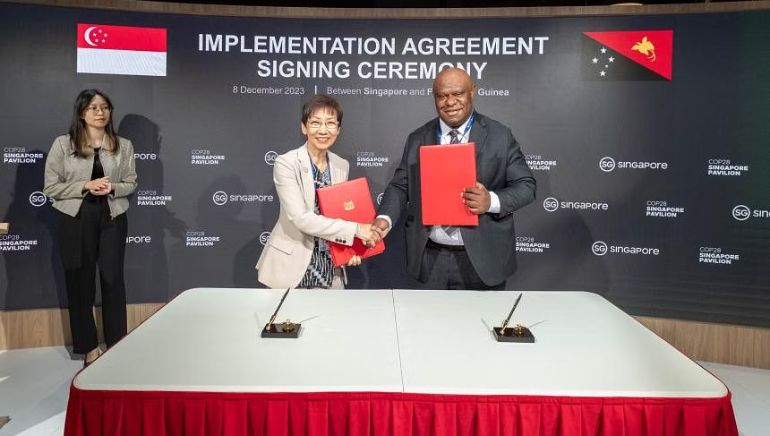Singapore sealed its first-ever agreement with Papua New Guinea on December 8, allowing Singaporean companies to purchase carbon credits from projects in Papua New Guinea to offset a portion of their carbon tax liability. The agreement, signed at the COP28 climate conference, is deemed significant as both nations are part of the Alliance of Small Island States (Aosis).
Minister for Sustainability and the Environment, Grace Fu, signed the agreement alongside her counterpart, Papua New Guinea’s Minister for Environment, Conservation, and Climate Change, Simo Kilepa. The accord mandates project developers to cancel 2% of authorized carbon credits for global emission mitigation and allocate 5% of the proceeds to climate adaptation efforts in Papua New Guinea.
Ms. Fu highlighted the dual focus on both mitigation and adaptation actions to align with the goals of the Paris Agreement. The carbon crediting projects are expected to bring sustainable development benefits to local communities, promoting job creation, enhanced energy security, and reduced pollution.
Companies in Singapore can offset up to 5% of taxable emissions by purchasing credits if the projects meet Singapore’s eligibility criteria for real and permanent emissions reductions. Singapore has previously concluded similar implementation agreements with Bhutan, Paraguay, Ghana, and Vietnam, creating a diversified portfolio of credits.
Ms Fu added that the agreement will set up a bilateral framework to allow for the transfer of carbon credits between the two countries, with measures in place to prevent double counting.
“This will create the avenue for worthwhile climate mitigation projects to be financed,” she added.
“High-integrity carbon markets can contribute to much-needed climate action globally, and it is imperative that the environmental integrity of carbon credits under the implementation agreement meets internationally recognised standards,” said Ms Fu.















